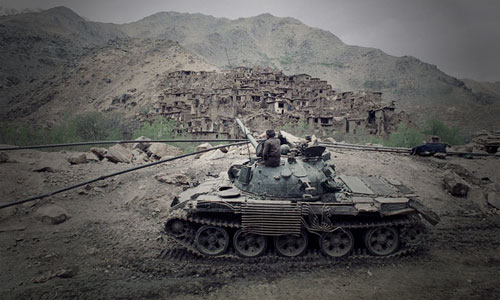With Bonn Conference in December 2001, a new page was opened in the history of Afghanistan. The Bonn agreement attracted the attention of the world. The international community engaged in Afghanistan’s affairs to carry out two missions: state building and nation building. In state building, the world concentrated on building security infrastructures and recognized friendly governments.
Fewer efforts were concentrated on constructing political and economic infrastructures for sustainable economic and democratic institutions, as well as reconstruction of roads, schools, clinics and other projects. The world community was unaware of the fact that nation building in Afghanistan was too hard and complicated since Afghan society does not welcome modernized system. The current society prefers tribal system of governing as 80 percent of the population lives in rural areas. The mountainous distance, included insecurity issue, prevents the residents to be approachable and helpful. The mindsets of rural and urban residents are largely different. In cities, the government is strong, but in villages, the government is weak. From decades ago, the “cultural gap” between cities and rural areas has caused a huge lack of effective communication between the Afghan state and ordinary people. This gap caused public dissatisfaction with the local and central government of Afghanistan.
The approach of nation building is not a new initiative in fragile countries; it has already taken in western post-war countries successfully. In order to test the actual applicability of nation building in Afghanistan, Afghan official manners and grass root level have to be considered, power exercises in districts and large cities should be analyzed. The moral legitimate of power, people’s support to the elected government, and citizens’ view about changes and reforms have to be deeply studied. According to political science, there is an inter-connection link between the word of citizen and nation building. What is commonly understood in nation building is the task of citizens. That is, nation building will succeed when citizens understand their responsibilities, be capable to identify sources and strategies to address conflict, understand cooperation or competition in Afghanistan’s regional context. It should be recognized how perception of “otherness” affects leaders, communities, and community building in areas beyond Afghanistan. The harmfulness of judgment based on race, ethnicity, gender, religion, economic class, age, physical and mental differences, and the impact of their lives and choices on national issues should be understood. Conceptual tools and methodologies should be learned to analyze and understand their social world to act in their country more effectively and believe that acting, as a nation is pure prosperity.
However, considering our recent political events, such as presidential elections and parliamentary elections show that we are still engaged within internal conflicts that entrenched on religious, racial, or ethic identities. And our communities still will be at war within themselves for quite a couple of times. There is no common sense and the citizens’ attitudes, mind-sets; behaviors have not changed yet. Therefore, the previous efforts have not fed to nation building as expected so far.
Finally, we can understand Afghanistan’s issues when we look at them analytically and think more like a social scientist and do not judge based on our background knowledge. To that end, we shall draw on explanations developed by social scientists to describe the roots of internal conflicts, and use those justifications to try to understand conflicts’ cause and effects in various parts of the country. We shall study the reasons why people want tribal system of government and traditional system of justice. One of the reasons is that rural residents are following their own traditional custom and do not care what it means to be a responsible citizen, do not care about the effects of their actions and the movements of others both in their community and in the whole country.
However, in the cities people think differently; they want luxury house, luxury life, facilities, democratic government, human rights, women rights, equality and modern life standards. The gap between the rural and urban residents has continued from 1978 until now and it is the key factor of unsustainable government in Afghanistan.
“There cannot be a firmly established political state unless there is a teaching body with definitely recognized principles. If the child is not taught from infancy that he ought to be a republican or a monarchist, a Catholic or a free-thinker, the state will not constitute a nation; it will rest on uncertain and shifting foundations; and it will be constantly exposed to disorder and change,” says Napoleon. Based on his analyses, nation building finds meaning when citizens of a country intellectually reach common sense – i.e. the inhabitants gain some specific characteristics of a real citizenship ahead of time.
Home » Opinion » Nation Building in Post War Countries
Nation Building in Post War Countries
| Dawlat Bakhiari

